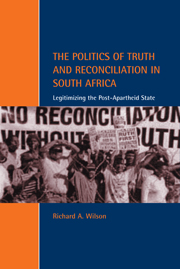1 - Human Rights and Nation-Building
Published online by Cambridge University Press: 10 November 2009
Summary
THE CIVIC STATE VERSUS ETHNO-NATIONALISM
The quest to build a ‘culture of human rights’ in South Africa after the multi-racial elections of 1994 needs to be understood in the context of a sea-change in global politics, and the rise of human rights as the archetypal language of democratic transition. A revived language of liberal democracy became increasingly prevalent in the mid-1980s, and was accentuated by the demise of the former Soviet Bloc and the rise of ethno-nationalist conflict in the Balkans. Since 1990, nearly all transitions from authoritarian rule have adopted the language of human rights and the political model of constitutionalism, especially in Latin America and the new states of Eastern Europe.
The end of the Cold War and the threat of irredentist nationalism led many intellectuals in Europe from a variety of political traditions to promote human rights and a return to the Enlightenment project. Among them, those as recondite as Jürgen Habermas (1992), as erudite as Julia Kristeva (1993) and as media-friendly as Michael Ignatieff (1993) advocated the establishment of constitutionalist states based upon the rule of law. All converge on the view that nations must not be constituted on the basis of race, ethnicity, language or religion, but should be founded instead on a ‘community of equal, rights-bearing citizens, united in patriotic attachment to a shared set of political practices and values’ (Ignatieff 1993:3–4). In this formulation, human rights are portrayed as the antithesis of nationalist modes of nation-building.
- Type
- Chapter
- Information
- The Politics of Truth and Reconciliation in South AfricaLegitimizing the Post-Apartheid State, pp. 1 - 30Publisher: Cambridge University PressPrint publication year: 2001

